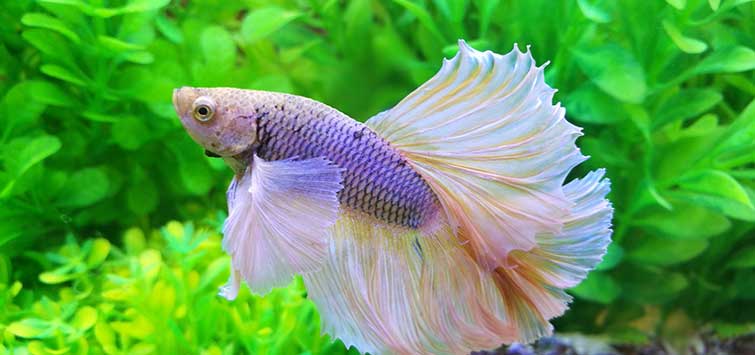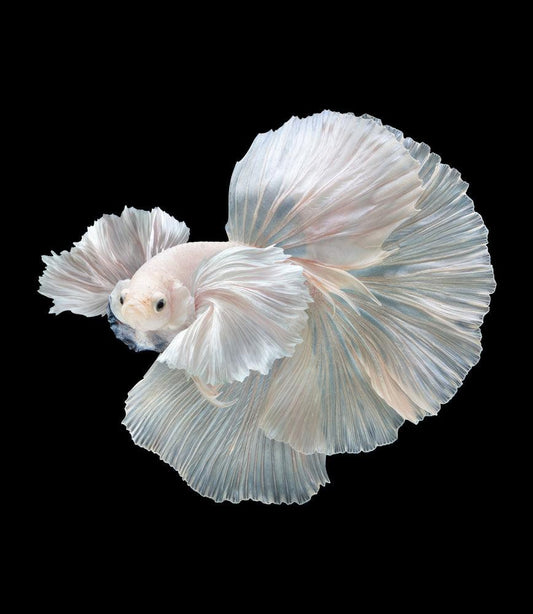The Ultimate Betta Fish Care Guide for New Pet Owners
The Ultimate Betta Fish Care Guide for New Pet Owners
Blog Article
All Regarding Betta Fish: Understanding Their One-of-a-kind Needs, Actions, and the most effective Practices for Optimum Care
Comprehending the unique requirements and actions of Betta fish is important for any type of aquarist looking to give optimal care. betta fish. As we check out these aspects better, the effects for both novice and knowledgeable fish caretakers come to be increasingly obvious, raising concerns concerning exactly how ideal to accommodate these amazing fish in our homes.
Betta Fish Summary
Although commonly admired for their lively shades and moving fins, Betta fish, medically known as Betta splendens, are complicated creatures that require particular care to flourish. Originating from Southeast Asia, these freshwater fish are known for their territorial nature and special habits. Betta fish exhibit sex-related dimorphism, with men showing a lot more vibrant colors and longer fins than females.
Their aggressive tendencies, particularly amongst men, demand cautious consideration when real estate them. Bettas are usually maintained in single-specimen storage tanks to prevent territorial disagreements. Nevertheless, they can coexist in harmony with specific compatible varieties in larger community containers, offered the environment satisfies their needs.

To ensure optimal care, aquarists should comprehend their one-of-a-kind behavior traits, dietary needs, and habitat requirements. betta fish. With appropriate interest, Betta fish can display their lively characters and grow in a properly maintained fish tank setup
All-natural Environment and Setting
Betta fish grow in a varied series of natural environments, largely located in the superficial waters of Southeast Asia, including rice paddies, swamps, and slow-moving streams. These environments are characterized by cozy temperature levels, normally between 75 ° F and 82 ° F(24 ° C and 28 ° C ), and a pH level varying from 6.5 to 7.5, which is suitable for their health and wellness and well-being.
In their all-natural environments, Betta fish are accustomed to dense plant life, giving both sanctuary and reproducing grounds. The presence of plants such as drifting water lilies and thick yards not just supplies defense from predators but additionally adds to the oxygenation of the water, which is essential for their respiratory system requirements. Additionally, these environments usually have areas of still water, allowing Betta fish to display their natural actions such as bubble nesting.
Comprehending the all-natural habitat of Betta fish is essential for fish tank enthusiasts. Reproducing these problems-- through water temperature level, pH balance, and the addition of live plants-- can dramatically enhance the total health and wellness and long life of these fascinating fish, guaranteeing they thrive in a home fish tank setting.
Social Habits and Communications
Recognizing the social actions and interactions of Betta fish is important for successful aquarium administration. Betta fish, or Siamese combating fish, are recognized for their unique behavioral attributes, identified mostly by territoriality and aggressiveness.
Alternatively, women Bettas show less hostile habits and can exist side-by-side in see teams, called sororities, if introduced properly. It is vital to check their interactions closely, as power structure and prominence can lead to problems. Recognizing the dynamics within a Betta neighborhood is important; establishing concealing places and making certain adequate area can reduce aggression.
In addition, Betta fish might additionally show curiosity and social behaviors in the direction of other species. While they can exist side-by-side with particular non-aggressive storage tank mates, it is important to pick suitable species to stay clear of anxiety and hostility. Overall, identifying these social interactions is key to fostering an unified aquarium setting for Betta fish.
Vital Care Standards
Supplying proper care for Betta fish is crucial to their wellness and well-being. Routine water changes-- roughly 25% weekly-- assistance keep water quality.
Betta fish need a suitable storage tank dimension; a minimum of 5 gallons is suggested to give appropriate space for swimming and hiding. Consist visit the site of decorations and plants to produce a revitalizing environment, yet prevent sharp things that might damage their delicate fins.

Last but not least, make sure the storage tank is geared up with a filter to keep the water tidy, however utilize a gentle filter to avoid solid currents that can worry the fish. By complying with these vital care standards, proprietors can promote a healthy and balanced and lively Betta fish.
Common Health And Wellness Issues and Solutions
In the treatment of Betta fish, recognition of common health problems is important for preserving their health. To deal with fin rot, boost water conditions and consider utilizing a broad-spectrum antibiotic.
An additional view common condition is ich, a parasitic infection characterized by white spots on the fish's body (betta fish). Treatment involves increasing water temperature and including aquarium salt to the container, as this can help remove the parasite
Swim bladder condition is additionally frequently observed, causing buoyancy problems. This condition might arise from overfeeding or bowel irregularity. A fasting period of 24-48 hours, complied with by a diet of blanched peas, can offer alleviation.
Last but not least, bettas may struggle with velour illness, shown by a gold dust-like look on their skin. Treatment commonly needs drug specifically created for external parasites, along with improved storage tank hygiene.
Routine surveillance of water parameters, keeping a tidy atmosphere, and giving a balanced diet regimen are important safety nets. By attending to these wellness issues quickly, Betta fish can lead much healthier, extra vivid lives.
Conclusion
In recap, effective betta fish care needs an understanding of their one-of-a-kind needs and habits. Giving a suitable environment, including proper tank size and water conditions, is vital for their health. Furthermore, identifying their territorial nature and making certain adequate hiding areas can protect against aggression. Regular monitoring of wellness and water top quality, along with a balanced diet, contributes to the durability and vibrancy of betta fish. Sticking to these standards will certainly cultivate a growing marine ecological community for these exciting animals.
Report this page